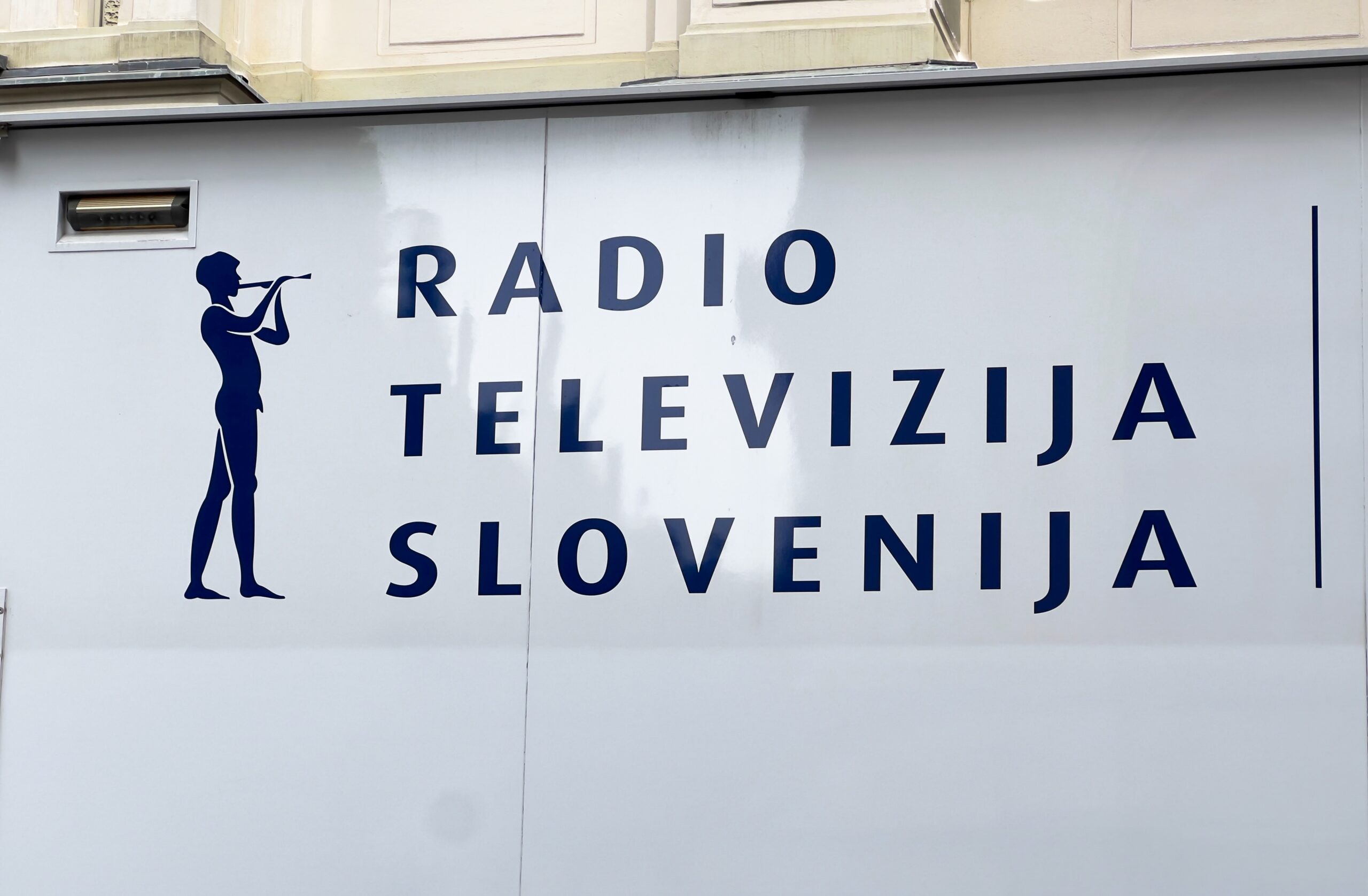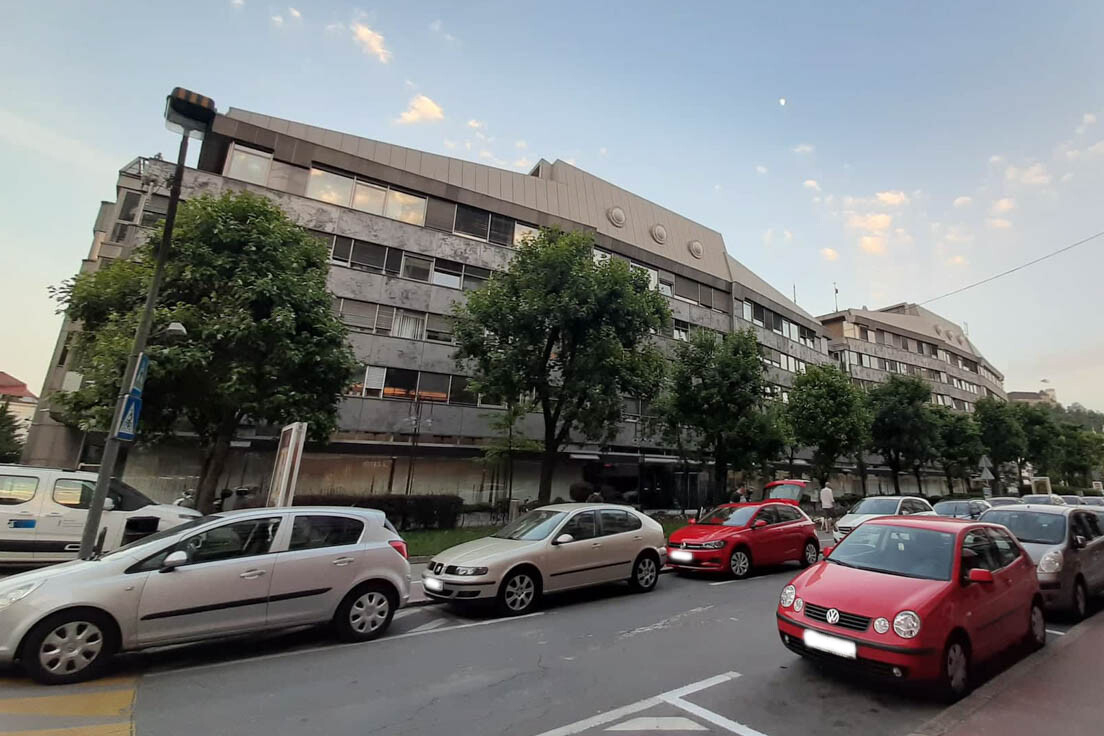Trust at RTV SLO: “It is easier to ruin than rebuild”
29 January 2024
After the public broadcaster underwent reforms following a turbulent few years, how is the broadcaster encouraging and restoring public trust in them as an institution?

Trust is hard won, and easily lost. In this new series on trust, we look at a number of different public broadcasters, and examine how they promote and foment trust in themselves as institutions. In this first report, we examine an organisation that underwent significant politicisation under a previous government, leading to an erosion of trust. Now there is a new government, has trust been restored?
– By Charlotte Pion
Public trust is slowly returning to Slovenian public broadcaster RTV SLO, as the organisation continues to experience fundamental changes.
Back in 2022, journalists from RTV SLO went on strike to protest against the serious threat to the existence of public service broadcasting and its employees. The then-government, led by Janez Janša and the Slovenian Democratic Party (SDS), had taken control over the public media and interfered with the content broadcasted on certain TV programmes. Alongside the cancellation or rescheduling of critical programmes and budget cuts, people were given notice, leaving a lack of expertise and increasing the pressure on journalists. Ultimately, this episode caused significant damage to trust in the broadcaster.
Read more: Strikes at RTV SLO amid wider instability
After Janez Janša’s government was replaced in mid-2022, the government put forward a bill which sought to depoliticise the public service broadcaster, which in a referendum, was heavily supported by the public. In June 2023, the bill was passed into legislation.
Since then, public debates have been organised by journalists unions, to ask the population “What kind of RTV do we want?”. Slowly, trust in the public media institution is slowly coming back. A new law on media was also proposed at the end of 2023, rethinking the two decades old Media Act. But despite all the changes, challenges remain when it comes to trust in RTV.
Troubled years, yet trust in journalist subsists.
As in many other countries, Slovenia’s public broadcaster had their share of troubles during the years of pandemic. With the general debate on COVID-19 vaccine and the underlying distrust that the pandemic brought in media institutions and governments, RTV journalists also faced pressure and smear campaigns from the government. In 2022, Dr. Igor Vobič from the Department of Journalism at the Faculty of Social Sciences of the University of Ljubljana described the dire situation that RTV SLO was in: “RTV is now politically subordinate, it is in a worrying financial situation, it is losing public trust and viewership, and at the same time it is completely without a development strategy in a very demanding digital environment. Changes are necessary.”
While the government was interfering in the public broadcaster, some journalists took the matter into own hands, and went directly to the public. Helena Milinković, journalist and President of the strike committee of journalist’s unions at RTV, said journalists created an alliance with experts, NGOs and civil society groups for advice and support. They also went in the field to talk to the public directly.
Podcast: Listen to Helena Milinković on PMA’s podcast
“Before the referendum, we went to the field,” she told PMA. “We talked to the people, we organised a few public tribunes to explain to the people, to talk directly to them about what was going on. We held regular press conferences in front of RTV to inform the public, and this is what brought people back to us”. Despite the general very low trust in the institution of public media because of all the pressures and political control over the news, Ms. Milinković said people trusted journalists and this is what kept them motivated to resist and continue their mission to inform.
She explained that, especially during the strikes which started in 2022, while television was captured, radio channels remained free and became the means to communicate with the public. “Radio became our platforms, our microphones as well and the speakers through which we could say and report the things that were censored on television. The trust of the public was already there, in the radio and journalists, but today it returned to the TV as well”.
Like this, a unique relationship was created between the Slovenian population and journalists
“During the pandemic, the government was manipulating information so much and attacking journalists with smear campaigns during conferences, but the people saw it. The people were calling us, journalists, for advice, on what to do.”
The unique case of Slovenia
Such a strong trust bond between the public and journalists is especially possible because Slovenia is a small country. Ms. Milinković recalled the recent floods that caused great damaged in a part of the country, where teams from RTV arrived before emergency services in some regions. “People sometime called us before they called the emergency services. And it was the same during the pandemic.”
“Everything is interconnected, and people know that. And that’s actually what they adopted during the referendum campaign and our strikes. The public see RTV as theirs, as a beacon of democracy and free speech.” – Helena Milinković, President of the strike committee of journalist’s unions at RTV
Public media in Slovenia has always been part of the critical infrastructure, along with the police, firefighters and other emergency services. In times of crisis, journalists were sent in the field to report on what was going on. Ms. Milinković pointed that journalists had a lot of support during their strikes and during the referendum from the police unions, who pledged to protect them, as they recognised their profession as one of the critical services needed for society.
This is also why journalists took the step to talk to people about what was happening at RTV when it was captured by the government. Journalists told the public about the funding problems, the pressure they were under and the government’s attempts to censor, and how they were obstructed to fulfil their mission to inform. “Everything is interconnected, and people know that. And that’s actually what they adopted during the referendum campaign and our strikes. The public see RTV as theirs, as a beacon of democracy and free speech.”
Subscribe toour newsletter
Keep updated with the latest public
media news from around the world
Despite changes, challenges remain
Since the 2022 referendum on the depoliticisation of RTV, people from public media have been working to rebuild what the previous management had destroyed. “Our priorities of course, is to rebuild the new programmes that were cancelled or changed. But rebuilding takes time. It is easier to ruin than to rebuild something, and we have to deal with many underlying problems from 10 years ago, due to the previous managements.”
One of the major problems that RTV has had to confront since the referendum, is the lack of staff and funding. As many people were fired or left because of political pressure, the lack of workforce but also expertise has been one of the major challenges so far. Because the people who were forced to leave did not have the chance to share their legacy to younger generations of journalists, producers and technicians, RTV has to rebuild itself but with limited people and skills.
“This is why we absolutely need a new and stable media law, that would provide a stable financing for public media so we can continue doing our mission” said Ms. Milinković. She stressed that while RTV needs young people and skilled people to come to work for the company, very few were tempted to, as RTV cannot offer competitive employment conditions due to lack of funding.
“The law will not bring changes in the operation of RTV overnight. This process is long-term and concerns not only RTV Slovenia, media and journalism, but society as a whole,” – Dr. Igor Vobič, Professor at the Department of Journalism at the Faculty of Social Sciences of the University of Ljubljana
There are some hopes that a new media law could rectify this situation. In December 2023, the Minister of Culture submitted a proposal to reform of the Media Act, which was last drafted in 2001 and was not amended ever since.

The new law on media would rely on three pillars: protection of media autonomy, diversity and informed citizens. It would also aim at increasing the transparency of media ownership and financing. It also laid out the project to establish a National Media Council which, in addition to other tasks, would take care of the implementation of regular annual monitoring of media pluralism. It also envisaged a tougher approach to the rising issue of hate speech. It also brought a new definition of media that also includes new media and technologies. But it will take time for a clear impact to be seen. “The law will not bring changes in the operation of RTV overnight. This process is long-term and concerns not only RTV Slovenia, media and journalism, but society as a whole,” mentioned Dr. Vobič.
Jamie Wiseman, Europe advocacy officer at the International Press Institute (IPI) recently told VOA with cautious optimism that the new Slovenian government “reversed the negative trajectory under the previous administration, ended the practice of verbal attacks on journalists by the leading government figures, and enacted a principled attempt … to limit political meddling and appointments,” . Still, Mr. Wiseman warned that “The road to democratic reform at RTV will continue to be bumpy.”
Indeed, the new Media Act proposal has faced criticism, especially concerning the take on transparency. Under the pretext of “transparency of state advertising”, the law provided for the consent of the government for advertising campaigns, which could be seen as a new politicisation of the media attempt, reported Nova24.
Furthermore, the whole question of public media funding is not entirely solved by the law which is still under consideration.
As Ms. Milinković told PMA, people were open for the licence fee to be raised, but there are political obstacles. Under the pretext of not wanting to raise more taxes, the current government refused until now to increase the funding of RTV, while still raising taxes in other sectors.
The public debate about the new Media Act should be held until the end of January.
Related Posts
10th August 2023
New Acting Director General appointed to RTV Slovenia
The Council of RTV Slovenia has…
27th May 2022
RTV Slovenija staff strike for independence of public media
Employees of Slovenia’s public…
23rd March 2022
RTV Slovenija’s Programming Council accused of restricting union activity
A Slovenian journalists’ union has…
